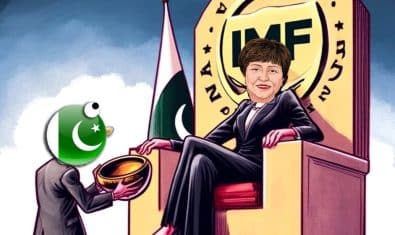Health activists have urged the government to take sustainable steps such as implementing a health levy on tobacco products to meet the criteria set by International Monitory Fund (IMF).
In a press release shared by the Society for the Protection of the Rights of the Child (SPARC), health activists dubbed Tobacco Health Levy as a profitable and sustainable option to solve Pakistan’s financial woes and recommended the government to take this route instead of taxing essential commodities.
Malik Imran Ahmed, Country Head of Campaign for Tobacco Free Kids, mentioned that the government has repeatedly said that it has to take harsh decisions in order to fill the state’s coffers and meet IMF’s requirements. However, there’s one area where increasing taxation is logical and beneficial and that’s the tobacco sector.
He mentioned that tobacco-induced diseases cause an annual economic burden of Rs. 615 billion which is 1.6% of Pakistan’s GDP. On the other hand, the revenue generated from the tobacco industry is Rs. 120 billion.
When a product is causing this much health loss, a levy must be implemented on it. Pakistan moved in this direction in 2019 by tabling a tobacco health levy bill but it hasn’t seen the light of the day due to continuous interference from tobacco industry.
Dr. Ziauddin Islam, Former Technical Head of the Tobacco Control Cell at the Ministry of Health, said tobacco products are non-essential and hazardous items that cause 170,000 deaths every year in Pakistan.
On average, Pakistani smokers spend 10% of their average monthly income on cigarettes. Due to cheap and easy affordability, nearly 1,200 children begin smoking every day in the country.
A struggling economy such as Pakistan can’t afford this much loss of precious human and financial resources.
Instead of taxing essential items which will raise inflation, the government should impose a health levy in addition to increasing the current FED on tobacco products that are the major source of our health woes and to reduce mortality and morbidity of tobacco-related diseases.
Khalil Ahmed Dogar, Program Manager, SPARC, stated that this challenging financial situation requires sustainable measures.
Pakistan is seeking foreign aid to rescue its citizens from financial disaster. Therefore the government should take those decisions which can benefit the health and wealth of the public.
One-time measures will bring us back to square one and we will have to ask for foreign aid again.
Instead, it is important to take decisions that can reap long-term benefits. This includes implementing a health levy on tobacco products and sugary drinks. These steps will generate much-needed revenue and save healthcare costs which will also help the national exchequer.

























